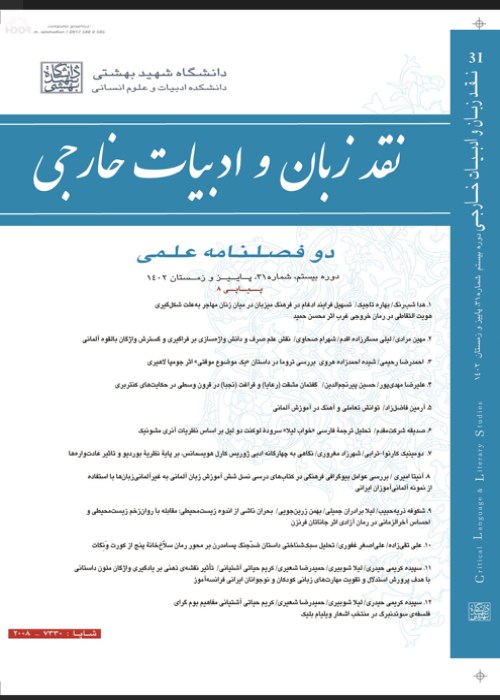Teacher Education and EFL Student Teachers' Professional Identity Construction
Identity is an ongoing concept that is generally described in terms of a set of one’s personal features in comparison to other persons (Pennington, 2015). It is stated that identity is associated with our concept of who think we are, and what others think of us (Gee, 2000). The line of studies on teachers’ identity was started by Norton’s (1995) seminal work and within the last two decades has changed into an established paradigm of research that tries to understand its connection with different aspects of teaching practices like power relations and cultural and sociopolitical discourses (Varghese et al., 2016; Yazan, 2018). In this regard, the notion of language teachers’ professional identity has also witnessed an increasing interest (Mahmoodarabi et al., 2021). Teachers’ professional identity is revealed in their lesson plans, teaching styles, classroom practices, and reactions to the demands and regulations posed by schools and higher-level educational institutions (Naidoo, 2012).
Background of the Study:
In the available literature, researchers mostly have attempted to explore the components of this construct (Beauchamp & Thomas, 2009), or its contribution to some factors like teaching quality (Labbaf et al, 2019) and the amount of success in dealing with work tensions (Wang, 2021). Teacher identity construction has also attracted some researchers’ attention (e.g., Cheng, et al., 2021,). However, few empirical studies have explored factors related to EFL teachers’ professional identity and teacher education in the context of Iran. For example, Riahipour et al, (2020) attempted to explore the impact of curriculum reform on Iranian EFL teachers’ professional identity. Results did not show any change in the professional identity of teachers in terms of task perception and self-esteem but a slight effect on their job motivation and self-image. Therefore, the shortage of research on how EFL student-teachers construct their identity within the context of teacher education and whether this context can change this identity is sensed. In this respect, the present study has attempted to shed light upon this area by considering freshman and senior student teachers for comparative purposes.
The participants of this study were 124 male and female Iranian EFL student-teachers who were selected from two branches of Farhangian University through convenience sampling. The sample consisted of 67 first-year and 57 last-year student-teachers. For the quantitative phase of the study, all of the participants filled out the English Language Teacher Professional Identity Scale (ELTPIS) developed by Mahmoodarabi et al. (2021) and for the qualitative phase 8 senior student teachers who expressed their willingness to answer the interview questions were selected.
Based on the obtained data, it can be concluded that the first-year student teachers had positive view in terms of all the domains that made their identity including researching and developing one’s practice, language awareness, institutional and collective practice, engaging learners as whole persons, appraising one’s teacher self, and sociocultural and critical practice. However, the senior students’ idea about the impressive role of doing research and considering socio-cultural factors in developing their practice was changed slightly near to graduation. Therefore, this research might contribute to a critical assessment of the student-teachers’ role in education and in deconstructing such discourses by making student-teachers aware of how discourses shape their identity development and how they might face resistance. Moreover, since only the first and last-year students were selected due to time limitations, conducting longitudinal studies in which identity construction among student teachers is qualitatively explored from the beginning of their study in teacher education universities is recommended.
- حق عضویت دریافتی صرف حمایت از نشریات عضو و نگهداری، تکمیل و توسعه مگیران میشود.
- پرداخت حق اشتراک و دانلود مقالات اجازه بازنشر آن در سایر رسانههای چاپی و دیجیتال را به کاربر نمیدهد.


